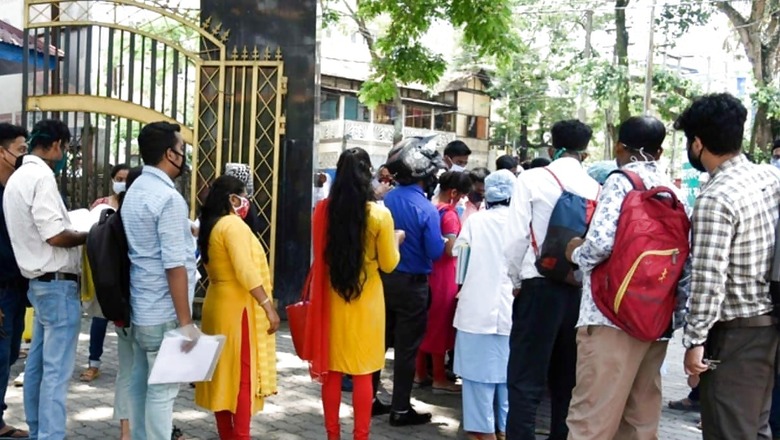
views
The Staff Selection Commission (SSC) released the admit card for the Junior Engineer (JE) 2023 exam on October 3. Candidates who have registered for the Junior Engineer examination can check and download their hall tickets from the official website of the SSC at ssc.nic.in. It is important to note that the JE admit card 2023 has been issued for regions including WR, ER, NER, MPR, CR, and NWR regions. Candidates will be able to access their hall tickets by logging in using their registered ID number and date of birth on the official website.
The commission is administering this exam to fill up a total of 1,324 vacancies of Junior Engineers (Civil, Mechanical, and Electrical) for numerous Organisations or offices of the Government of India (GoI). As per the schedule, the SSC JE 2023 examination will be conducted from October 9 to 11. It will be held in computer-based test (CBT) mode. The recruitment exam will be conducted at several examination centres across the country.
SSC JE Admit Card 2023: How to Download
Step 1: Go to the official website of SSC at ssc.nic.in
Step 2: On the homepage, look for and click on the ‘Admit Card’ section.
Step 3: Select the region from where you applied for the SSC JE 2023 exam.
Step 4: After which you will be redirected to the regional website of the commission.
Step 5: As a new window opens, enter your ‘Registration ID Number’ and ‘Date of Birth’ on the login window.
Step 6: The JE admit card 2023 will appear on the screen.
Step 7: Check all the details and download the hall ticket.
SSC JE 2023: Exam Pattern
The paper-I will be a computer-based examination to be held for a duration of two hours. The exam will comprise general intelligence and reasoning featuring 50 questions for 50 marks. There will also be questions on general awareness comprising of 50 questions for 50 marks. There will also be questions from general engineering — civil and structural or electrical or mechanical depending on what the candidate chose during registration. There will be 100 questions for 100 marks. The exam pattern for paper-II will remain the same. The second paper will carry a total of 100 questions for 300 marks.
Both papers will include Objective Multiple-Choice Questions (MCQ). Parts I, II, and III of Paper I and Paper II will include questions in Hindi and English. In Papers I and II, every incorrect response will result in a negative marking equivalent to one-third of the marks assigned to the question.














Comments
0 comment